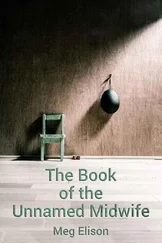She let go the second she heard his voice and for the first minute of the call she cried with an abandon that he, on the other end, did not entirely comprehend. “Oh,” she said. He listened to her let out a heavy sigh in sobbing degrees. “Oh, Tim.”
“I’m not dead,” he said. “But I do have to take medicine.”
“Oh,” she said again. “I’ve been so…” She tried to collect herself. “Tell me where you are and I’ll pick you up.”
“But there’s one I just don’t take because it’s probably better to be dead than to go around feeling like that, all zombie you know, just totally whacked out and exhausted and who gives a fuck you can’t even think — I have two like that, actually—”
“Where are you, Tim? Please tell me.”
“—but the second is for the seizures and I probably shouldn’t, I don’t know—”
“Seizures?”
“Probably shouldn’t give that one up, I guess, even though I haven’t had one since I was in the hospital so maybe they’re gone now. I wouldn’t put it past him to make something just — poof! — you know, disappear. He makes his own rules and what the fuck am I supposed to do if they keep shifting? It’s like I told the doctors. Medicine can secure a base here and there but there will always be a battle going on somewhere else.”
“Tim, please tell me, please tell me where you are,” she said.
“I try not to pay attention and I do a pretty good job, too, when you consider how demanding he is, like I’m torturing him, you know, like I’ve taken him captive. For a while there we were trading retaliations in a zero-sum game. The chain of command was in constant flux. I thought I was winning but he changed the rules on me and that’s when he got the upper hand, when I went down, and that lasted for, I don’t know. I was under maybe three weeks?”
“Under?”
“Three weeks of torment. I was defenseless. He just had the run of me. He doesn’t think much about God. I’ve come around on that matter. I believe in God now. Isn’t that something?”
“Tim, please listen to me. I want to say something to you.”
“Do you remember that doctor one time, he told us about the blood-brain barrier? Now, that’s a distinction. On the one hand you’ve got the blood, just dumb as a train full of rocks, important rocks but dumb dumb dumb, and on the other hand the brain, which is where, you know, the me and the you, where the me and the you come from, and with this barrier in place, you keep the bastard out, you see. Integrity is maintained. There’s a beautiful sanctity, when you think about it, a really holy and reverent sanctity that keeps the pure godlike parts from mixing with the rank and baser stuff, the rot, the decay, the blood, the rocks. That’s where the real armies of God are, right there on that blood-brain barrier, doing God’s work. I mean, that is the real frontline in the battle between the two—”
“What two?”
“The body and the soul. The blood-brain barrier and the synapses are the two main fronts. You’ve got both sides fighting for control of the dendrites and the axons and what all else I don’t know.”
“I don’t understand, Tim, I don’t understand.”
“But he still finds ways to break through, even when I’m taking the medication. He commandeers my mind. That’s my theory, anyway. Have you started drinking again?”
She was silent. “If I said yes,” she said, “would you come home?”
He didn’t reply.
“Tim, listen to me. Are you listening?”
He continued to say nothing.
“Scrub Island,” she said.
He was quiet.
“You know what that is,” she said. “Scrub Island. You remember Scrub Island?”
“Don’t drink,” he said. “Okay?”
“The little girl in the wedding dress,” she said. “The ostriches and the man herding them with the bullwhip. I know you remember Scrub Island.”
He stayed silent, holding the phone with one hand and the cord in the other, staring down at his high-tops gone brandless with grime.
“Tell me where you are,” she said, “and I’ll pick you up.”
“I have to go now,” he said. “Don’t drink.”
He hung up and walked from the pay phone to the dining hall, situated in the church basement. The tables were laid with yellow plastic tablecloths. A faint odor of steamed food, bland and heavy, drifted across the room. Those eating wore their winter coats while the volunteers manning the deep basins of food behind the main table wore white aprons. He got himself a set of plastic silverware bundled in a napkin and a Styrofoam plate of food and sat down and ate his dinner as best he could.
I respected you more when you were indifferent to God. You were beset by matters of urgency in your life that took precedence over the lofty speculation of divinity students and men in pews on Sundays. You didn’t have the time. You didn’t make it a priority. You formed your notions on the fly, in flashes of grim insight, in brief feelings of certainty that consumed you entirely and then quickly faded into the background. When you die, you thought, you die. Why linger on that unpalatable truth? And the alternative, the alternative was a sham. You hated the institutions and the corruptions and the hypocrisies and the evils. You thought it was all a racket designed by the mighty to fleece the weak and keep them in check. The existence of the numinous, the mystical, the godhead itself — who knows? Maybe. But what evidence was there? You had been chiseled by reason to a diamond point. You were deferential to logic and evidence, skeptical of specious oratory, an enemy of hearsay. At best, you put the possibility in abeyance, knowing that even when one of your cases went to trial, when every detail was presented and picked over, every side aired and attacked and defended, there was slippage, lacunae, things no one would ever know. God was like that. God was a trial. But if pressed you sided with the disbelievers and sometimes you even showed contempt for those who spoke with the conviction of the weak and the credulous. You had that luxury. You stood outside of the wind and the rain. Your insights and arguments came to you in prosperity. Death was far off. You could afford to be leisurely. A drink was better than a thought. A meal was better than a conviction. Your family and your work were more meaningful to you than the ministrations of a hundred gods. That is, until you caved.
He approached the pharmacist at the drop-off window and handed her a number of prescriptions. She inspected them.
“These are all from out of state,” she said, handing them back.
“What does that mean?”
“They have to come from an in-state doctor.”
He looked over the writing on the prescriptions. Apparently he wasn’t in Missouri anymore.
“I really need these,” he said. “It’s getting bad.”
“I’m sorry,” she said, “it’s state law. You have to get them from a doctor here.”
He took the prescriptions and walked back through the drugstore and out into the cold.
The rooftops and the rooms disappeared, and you caved. O weak thing called the spirit! O untested man! Nature proved itself to be indifferent on the mildest days, dependably vicious and antagonistic on all others. That this came as a surprise to you reveals the narrowness of your imagination and the naiveté that characterized every matter—
“You shut up.”
— of so-called life and death. You made your steadfast convictions cradled in a swivel chair. Now you’ve shown yourself vulnerable to sentimentality. Your “belief” is no moral law or cohesive thought or even a beautiful speculation. It’s a desperate search for comfort and has nothing to do with goodness, truth or beauty. You’ve simply weakened to the primordial fears that shook your superstitious forebears to the bones and convinced them to incant in extinct languages and drain their daughters of blood. For all your higher plane and beloved evolution, you now quiver in the same gradations of faith and testament, and your appeal is no less shrill. You want the old comforts and narratives—
Читать дальше












